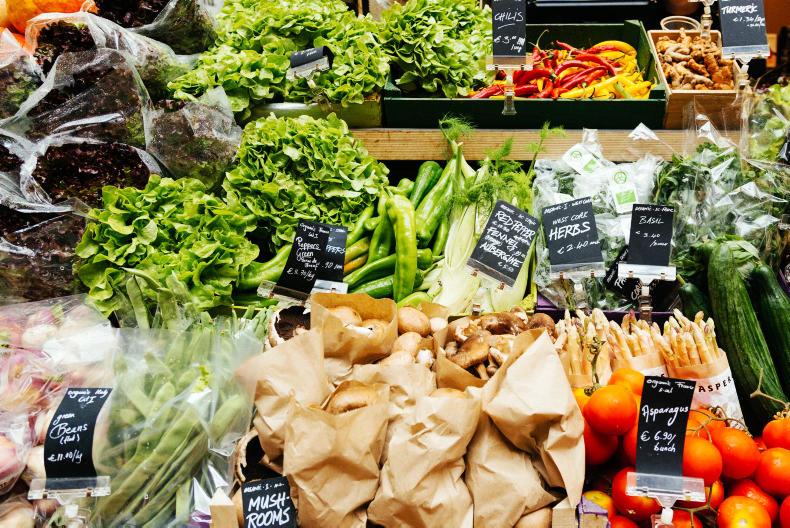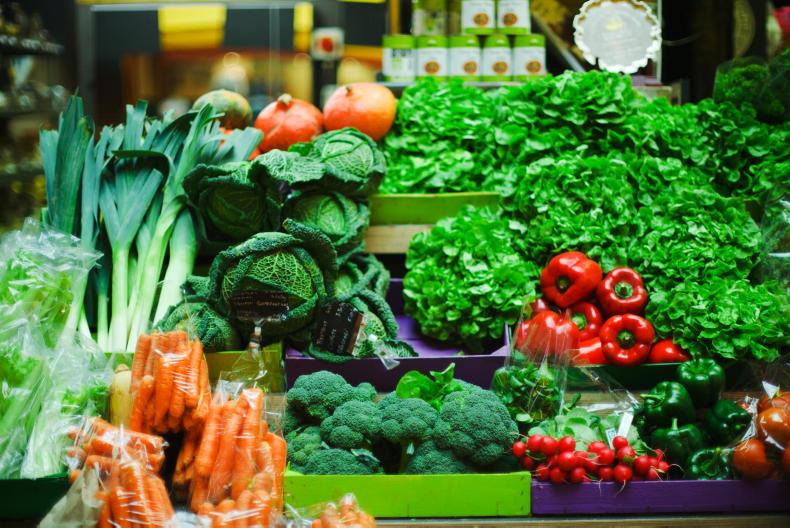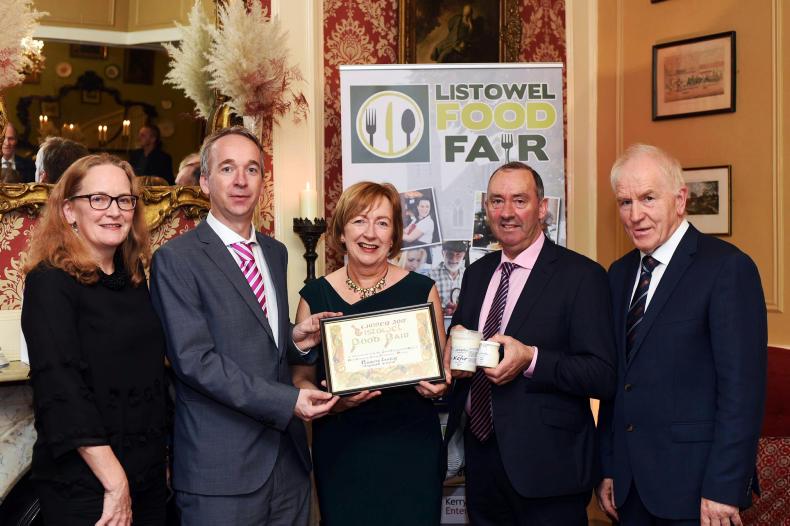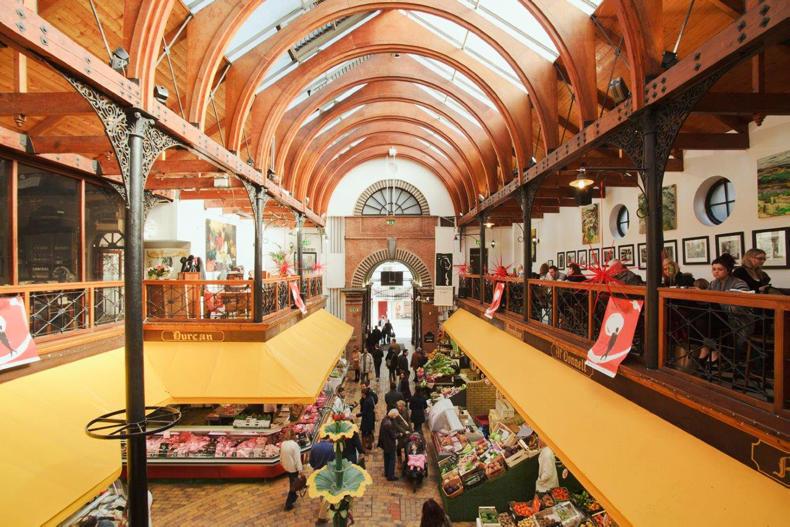Business ideas are never in short supply. But having the confidence and skills to see them through is a different matter. The part-time diploma in speciality food production at University College Cork (UCC) aims to give students the contacts and knowledge needed to pursue their enterprise. The course, delivered over a one-year period, boasts some impressive alumni since it began in 2005. Norma Dinneen from Bo Rua Farm cheese, Norma Leahy from Carralea Dairy products and Philip O’Connor from Seymours Irish Biscuits are just some of the past pupils.

It is aimed at people who are starting a speciality or artisan food business from the home farm, but also caters for those interested in growing an existing business.
“The course is designed to give people a scientific background in artisan food production,” programme manager Dr Angela Sheehan explained. “Some come in with an idea and some come in with a product or a business they’ve started. Typically it’s someone who makes something in their kitchen. A third of the class is from a farming background and a third is from a chef background. A lot have gone on to develop dairy or meat products.”
The programme delivers an education across all the relevant areas of food production, including food science, technology, management, marketing, food safety and impact on the environment.
Networking
The graduates that spoke to the Irish Country Living all said that it was the contacts they made throughout the course that stood to them.
The course is delivered over one academic year (October to June) on a part-time basis in UCC. It is usually from 9am-5pm on a Tuesday and Wednesday every three weeks or so. Not only are there lectures and guest speakers, but also workshops and field trips to places like the English Market and Ballymaloe.

“We bring in people to do case studies, people from the Food Safety Authority of Ireland, Local Enterprise Offices etc,” said Angela. “So it’s not just educating them but also showing them where to go for support. Then they have the network among themselves of the graduates.”
An environmental health officer (EHO) takes part in the programme each year too, all small-scale artisan producers must make contact with an EHO. To have one on the course each year Angela said has proved very successful.
“It helps the EHO understand the kind of people who are setting up artisan food businesses. Regulations are often set up for larger-scale operations. Then the contact is there afterwards, students will often approach the EHO that was in their class with them to run ideas past before contacting their EHO. It hugely benefits the class and us as well.”
Third-level education is not needed to apply for this course. Performance is assessed on a continuous basis and there are assessments at the end of each module. There is a diploma assignment which students often use to apply the skills learnt on the course to their idea or existing business.
“Typically people are coming in because they feel it will give them an education, confidence and credibility. They make it at home and they wonder how they take the next step.”
Graduates receive a Level 7 diploma from UCC. The course costs €2,800 but the Department of Agriculture provides 64% of the fee for eligible applicants, bringing the cost down to just €1,000. The fee includes all tuition, course materials and refreshments.
“Everybody who gets a place gets the bursary. We usually have 20 places, we might take a few extra if we are oversubscribed,” Angela said. “It’s fantastic for those doing the programme and also it’s the support from the Department of Agriculture for these people. It’s the only course of its kind in Ireland, the UK and possibly Europe.
“People can apply anytime from here on in. We have a selection process because of the bursaries to make sure people understand the process. They have to answer three questions; who they are, their background and why they want to do the course. We want to make sure people on the course know what they are getting into.”
1 Local food production systems.
2 Food chemistry and packaging.
3 Food processing technology.
4 Nutrition and sensory science.
5 Speciality food marketing and distribution.
6 Food microbiology.
7 Risk analysis.
8 Managing speciality food enterprises.
9 Food production and the environment.
10 Assignment.
For more information, visit ucc.ie/en/fitu or contact Dr Angela Sheehan at a.sheehan@ucc.ie. The deadline for applications is 18 September.
Norma Leahy, Carralea Dairy Products, Listowel, Co Kerry
“I did the course in the 2016-17 academic year. There was an article on Norma Dineen in 2016 that made me go for the course. That’s how I became aware of it. At the time my husband was a dairy farmer and I was a primary teacher. We often talked about doing something with the milk but never got around to it.

Norma and Willie Leahy, Carralea Dairy Products (centre), Moyvane, County Kerry winner of the Best Emerging Artisan Award -Dairy Category, for their strained kefir receiving their award from Victor Sheahan, LEO, Listowel, Jimmy Deenihan, Listowel Food Fair and Angela Sheahan, UCC at the presentation of awards in The Listowel Arms Hotel at the weekend.\ Don MacMonagle
“The modules I was most interested in were microbiology and dairy science. The risk analysis too was very good, I needed that because I had no background in science.
“Two years on from it, I still have a network of people I can contact. My final year assignment was on kefir and the feedback was very positive. We began production at the end of August 2017 after I finished the course that May. We converted the garage into a production area. We started going to the Limerick milk market and then began to supply some health shops.
“We’re still farming and I’m still teaching on a job-sharing basis. You start off with very rose-tinted glasses, you put in a lot of money to set up your dairy and get started. It takes a few years to see how successful you’re going to be.
“We do natural kefir and raspberry flavoured, our natural flavour won gold at Blas na hÉireann.
“My husband had used kefir when he was unwell one spring, it was great to build up his immune system after he was in hospital with a number of infections.
“When setting up a business you have to have a business mindset on you and doing the course you realise how much more committed you are than you think you are. It’s challenging to put yourself out there. The course brings a lot of entrepreneurs in to talk to you and Cork is a real foodie city.
“We did a number of day trips. It shows you what potential is there and people who are already set up. They do tell you how difficult the road is.
“The course is great, it’s brilliant and then you decide if you want to go forward or not. It gave us a bit of courage and confidence. It is most definitely good value for money.”
Thomas Fouhy, organic tillage grower near Fermoy, Co Cork
“I found that the course was like a hidden gem at the time, it was advertised but not really pushed. It covered so much, it didn’t specialise in one area, and it gave you an overview of everything. I’m an organic part-time farmer and after it I did a three-year Masters in organic agriculture in Scotland.
“People without a third-level education were apprehensive at first but we had the most fantastic orientation and by the end of the day we were the best of friends. What has also helped was the networking. It’s not just food production, it lends itself to agri tourism as well and you could go down plenty of avenues.
“If you had a product or start-up you can go back into them in UCC and they will put you in touch will the right people. It’s the goodwill mentoring that’s there that made it for me.
“If you do want to start an on-farm business the course is absolutely brilliant; learning the pitfalls before you start the business.
Consumer education in food has come up a lot, people want to know about provenance and quality
“I learnt a lot and it cuts your exuberance a small bit, you tend to look at it in a more pragmatic way. You have a better chance of success. We went to Ballymaloe and places like that and had guest speakers in. I thought what they had in UCC should be promoted all over Europe.
I had just secondary school education. My kids encouraged me to do it
“Consumer education in food has come up a lot, people want to know about provenance and quality. If you want to build on the course UCC has other programmes as well such as cheese making and charcuterie.
“I had just secondary school education. My kids encouraged me to do it. You can have the best product in the world, but if you don’t package it right or market it right people won’t know about it.
“My project was on flour; to get wheat with the right gluten structure for breadmaking. Sourdough works in this country because it has a longer fermentation period.”
Business ideas are never in short supply. But having the confidence and skills to see them through is a different matter. The part-time diploma in speciality food production at University College Cork (UCC) aims to give students the contacts and knowledge needed to pursue their enterprise. The course, delivered over a one-year period, boasts some impressive alumni since it began in 2005. Norma Dinneen from Bo Rua Farm cheese, Norma Leahy from Carralea Dairy products and Philip O’Connor from Seymours Irish Biscuits are just some of the past pupils.

It is aimed at people who are starting a speciality or artisan food business from the home farm, but also caters for those interested in growing an existing business.
“The course is designed to give people a scientific background in artisan food production,” programme manager Dr Angela Sheehan explained. “Some come in with an idea and some come in with a product or a business they’ve started. Typically it’s someone who makes something in their kitchen. A third of the class is from a farming background and a third is from a chef background. A lot have gone on to develop dairy or meat products.”
The programme delivers an education across all the relevant areas of food production, including food science, technology, management, marketing, food safety and impact on the environment.
Networking
The graduates that spoke to the Irish Country Living all said that it was the contacts they made throughout the course that stood to them.
The course is delivered over one academic year (October to June) on a part-time basis in UCC. It is usually from 9am-5pm on a Tuesday and Wednesday every three weeks or so. Not only are there lectures and guest speakers, but also workshops and field trips to places like the English Market and Ballymaloe.

“We bring in people to do case studies, people from the Food Safety Authority of Ireland, Local Enterprise Offices etc,” said Angela. “So it’s not just educating them but also showing them where to go for support. Then they have the network among themselves of the graduates.”
An environmental health officer (EHO) takes part in the programme each year too, all small-scale artisan producers must make contact with an EHO. To have one on the course each year Angela said has proved very successful.
“It helps the EHO understand the kind of people who are setting up artisan food businesses. Regulations are often set up for larger-scale operations. Then the contact is there afterwards, students will often approach the EHO that was in their class with them to run ideas past before contacting their EHO. It hugely benefits the class and us as well.”
Third-level education is not needed to apply for this course. Performance is assessed on a continuous basis and there are assessments at the end of each module. There is a diploma assignment which students often use to apply the skills learnt on the course to their idea or existing business.
“Typically people are coming in because they feel it will give them an education, confidence and credibility. They make it at home and they wonder how they take the next step.”
Graduates receive a Level 7 diploma from UCC. The course costs €2,800 but the Department of Agriculture provides 64% of the fee for eligible applicants, bringing the cost down to just €1,000. The fee includes all tuition, course materials and refreshments.
“Everybody who gets a place gets the bursary. We usually have 20 places, we might take a few extra if we are oversubscribed,” Angela said. “It’s fantastic for those doing the programme and also it’s the support from the Department of Agriculture for these people. It’s the only course of its kind in Ireland, the UK and possibly Europe.
“People can apply anytime from here on in. We have a selection process because of the bursaries to make sure people understand the process. They have to answer three questions; who they are, their background and why they want to do the course. We want to make sure people on the course know what they are getting into.”
1 Local food production systems.
2 Food chemistry and packaging.
3 Food processing technology.
4 Nutrition and sensory science.
5 Speciality food marketing and distribution.
6 Food microbiology.
7 Risk analysis.
8 Managing speciality food enterprises.
9 Food production and the environment.
10 Assignment.
For more information, visit ucc.ie/en/fitu or contact Dr Angela Sheehan at a.sheehan@ucc.ie. The deadline for applications is 18 September.
Norma Leahy, Carralea Dairy Products, Listowel, Co Kerry
“I did the course in the 2016-17 academic year. There was an article on Norma Dineen in 2016 that made me go for the course. That’s how I became aware of it. At the time my husband was a dairy farmer and I was a primary teacher. We often talked about doing something with the milk but never got around to it.

Norma and Willie Leahy, Carralea Dairy Products (centre), Moyvane, County Kerry winner of the Best Emerging Artisan Award -Dairy Category, for their strained kefir receiving their award from Victor Sheahan, LEO, Listowel, Jimmy Deenihan, Listowel Food Fair and Angela Sheahan, UCC at the presentation of awards in The Listowel Arms Hotel at the weekend.\ Don MacMonagle
“The modules I was most interested in were microbiology and dairy science. The risk analysis too was very good, I needed that because I had no background in science.
“Two years on from it, I still have a network of people I can contact. My final year assignment was on kefir and the feedback was very positive. We began production at the end of August 2017 after I finished the course that May. We converted the garage into a production area. We started going to the Limerick milk market and then began to supply some health shops.
“We’re still farming and I’m still teaching on a job-sharing basis. You start off with very rose-tinted glasses, you put in a lot of money to set up your dairy and get started. It takes a few years to see how successful you’re going to be.
“We do natural kefir and raspberry flavoured, our natural flavour won gold at Blas na hÉireann.
“My husband had used kefir when he was unwell one spring, it was great to build up his immune system after he was in hospital with a number of infections.
“When setting up a business you have to have a business mindset on you and doing the course you realise how much more committed you are than you think you are. It’s challenging to put yourself out there. The course brings a lot of entrepreneurs in to talk to you and Cork is a real foodie city.
“We did a number of day trips. It shows you what potential is there and people who are already set up. They do tell you how difficult the road is.
“The course is great, it’s brilliant and then you decide if you want to go forward or not. It gave us a bit of courage and confidence. It is most definitely good value for money.”
Thomas Fouhy, organic tillage grower near Fermoy, Co Cork
“I found that the course was like a hidden gem at the time, it was advertised but not really pushed. It covered so much, it didn’t specialise in one area, and it gave you an overview of everything. I’m an organic part-time farmer and after it I did a three-year Masters in organic agriculture in Scotland.
“People without a third-level education were apprehensive at first but we had the most fantastic orientation and by the end of the day we were the best of friends. What has also helped was the networking. It’s not just food production, it lends itself to agri tourism as well and you could go down plenty of avenues.
“If you had a product or start-up you can go back into them in UCC and they will put you in touch will the right people. It’s the goodwill mentoring that’s there that made it for me.
“If you do want to start an on-farm business the course is absolutely brilliant; learning the pitfalls before you start the business.
Consumer education in food has come up a lot, people want to know about provenance and quality
“I learnt a lot and it cuts your exuberance a small bit, you tend to look at it in a more pragmatic way. You have a better chance of success. We went to Ballymaloe and places like that and had guest speakers in. I thought what they had in UCC should be promoted all over Europe.
I had just secondary school education. My kids encouraged me to do it
“Consumer education in food has come up a lot, people want to know about provenance and quality. If you want to build on the course UCC has other programmes as well such as cheese making and charcuterie.
“I had just secondary school education. My kids encouraged me to do it. You can have the best product in the world, but if you don’t package it right or market it right people won’t know about it.
“My project was on flour; to get wheat with the right gluten structure for breadmaking. Sourdough works in this country because it has a longer fermentation period.”









 This is a subscriber-only article
This is a subscriber-only article










SHARING OPTIONS: